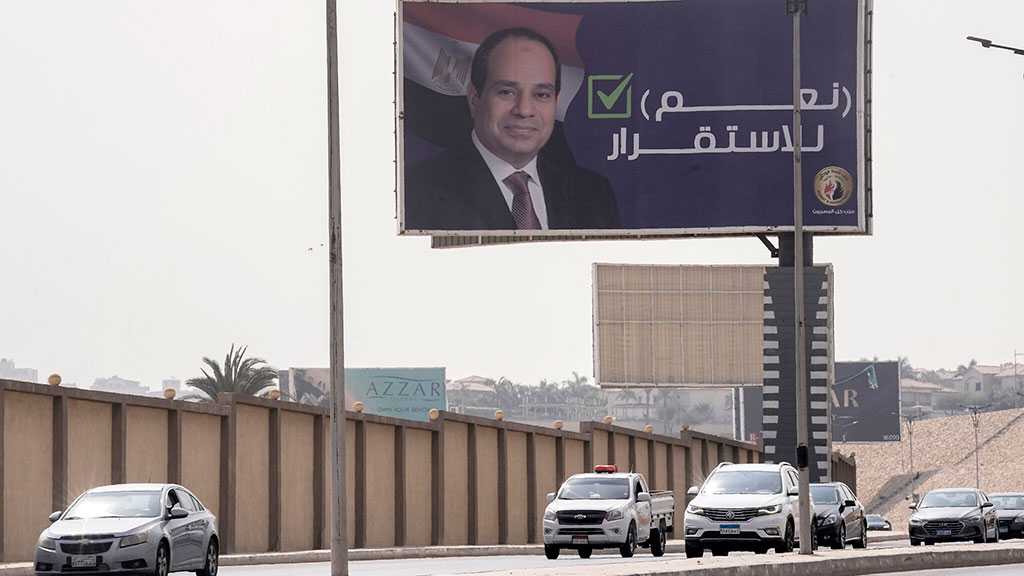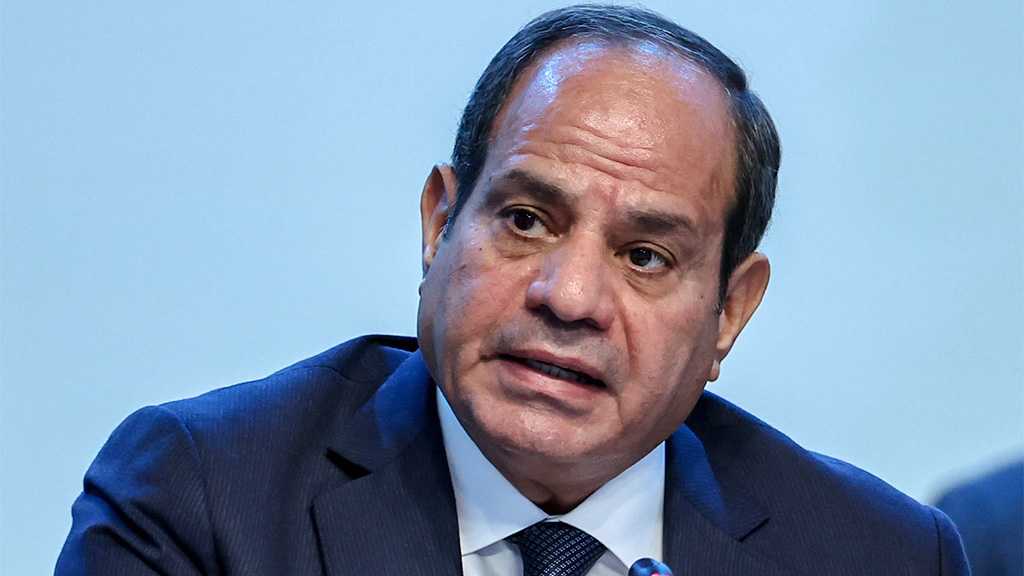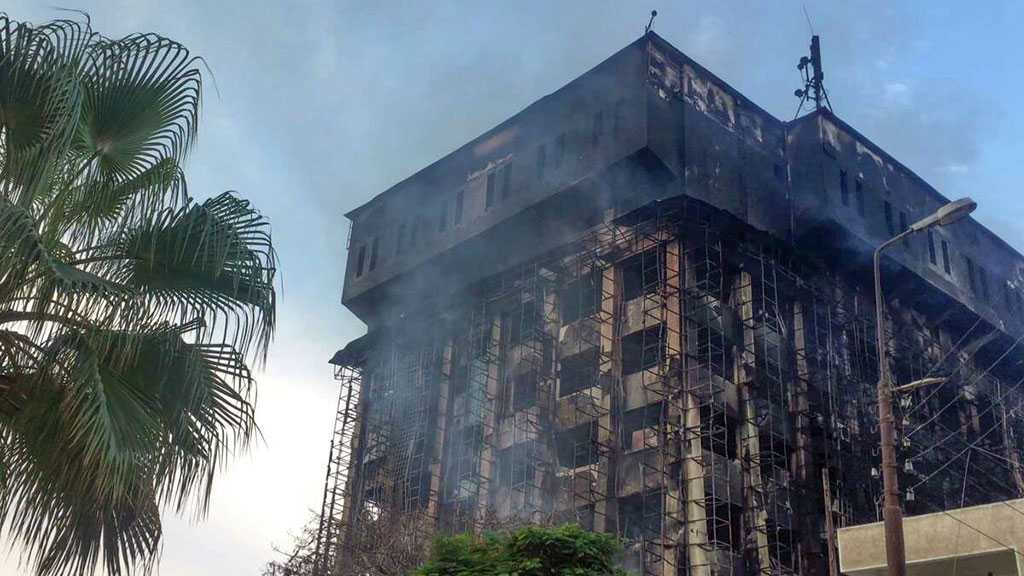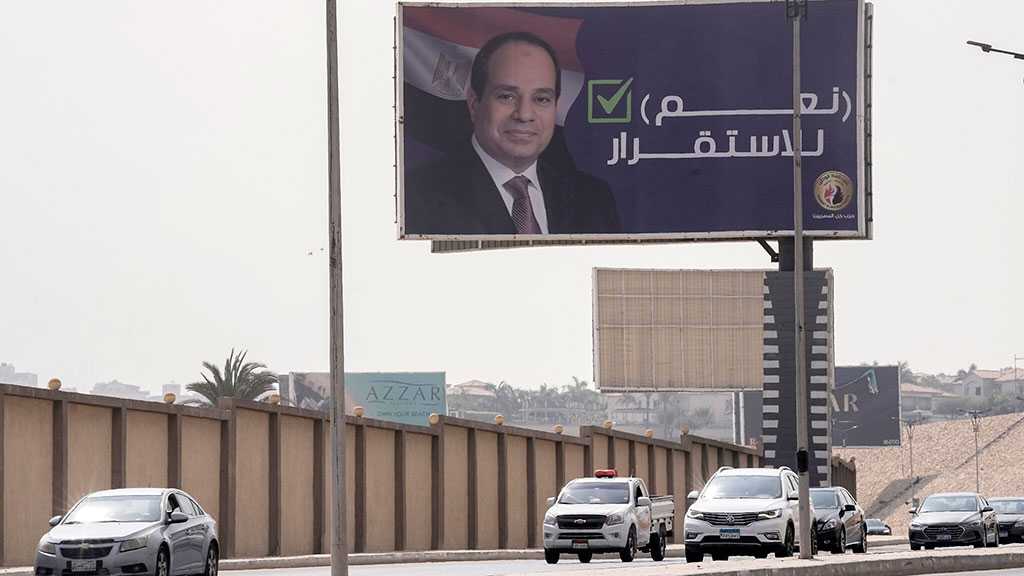
Egypt Rebuffs US Interference, Burns Urges Nonviolent Path
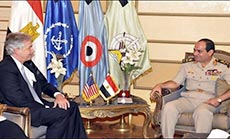
Local Editor
In the clearest statement yet of the United States' position on the ouster of Egyptian President Mohamed Mursi, a senior American diplomat warned on Monday that the generals would jeopardize Egypt's "second chance" at a democratic transition if their new interim government continued to crack down on Mursi's supporters.
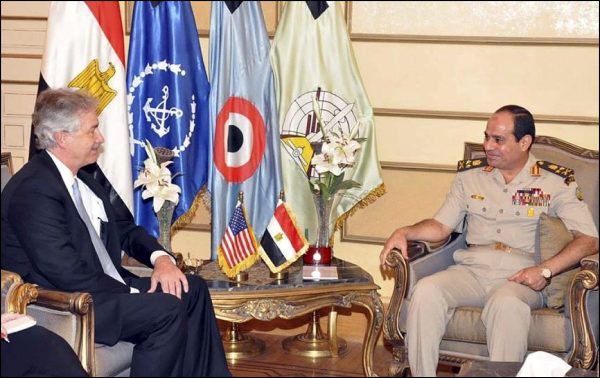 Deputy Secretary of State William J. Burns met with Egypt's interim president, Adli Mansour, in Cairo on Monday.
Deputy Secretary of State William J. Burns met with Egypt's interim president, Adli Mansour, in Cairo on Monday.
"If representatives of some of the largest parties in Egypt are detained or excluded, how are dialogue and participation possible?" the diplomat, Deputy Secretary of State William J. Burns, told journalists after meeting with generals and the interim officials they have appointed.
"It is hard to picture how Egypt will be able to emerge from this crisis unless its people come together to find a nonviolent and inclusive path forward," Burns said.
The first senior United States official to visit Cairo since the takeover, spoke against the backdrop of a standoff between the military's interim government and tens of thousands of Muslim brotherhood supporters who have staged a two-week sit-in to protest the ouster Mursi.
New clashes broke out between the supporters and the police within hours of Burns's statement.
Leaving their main encampment, thousands of Mursi's supporters filled a major square, blocking a main bridge that is a central artery for the city's traffic. They set tires on fire to block streets and hurled rocks at police officers who tried to displace them. Riot police officers showered the protesters with bursts of tear gas, while opponents of Mursi entered the fray and dragged some to a police station. By 1 a.m., the police had begun firing birdshot as well, state news media said.
Crowds of Mursi supporters also gathered across the Nile River at Cairo University and in other cities around the country. At least 22 people were wounded in the Cairo clashes, according to the city's ambulance authority.
Meanwhile, Burns urged both sides to take steps to reconcile. "The government itself has said it wants inclusion of all political streams," he said. "We have called on the military to avoid any politically motivated arrests. And we have also called upon those who differ with the government to adhere to their absolute obligation to participate peacefully."
He did not repeat American calls for the generals to release Mursi. Burns never mentioned the ousted president, nor the movement behind him, the Muslim Brotherhood. When an Egyptian journalist asked how the new government responded to American calls for Mursi's release, Burns said only, "We have made our views clear on that issue."
Seemingly all sides rebuffed Burns. The young organizers of the petition drive that preceded Mursi's ouster, the ultraconservative Salafist al-Nour party and officials of the Muslim Brotherhood all said they would not meet with Burns.
Tamarod, the movement that spearheaded the grassroots campaign against Mursi, said it rejected an invitation to meet the US envoy on Monday, citing Washington's interference in Egypt and its failure to support their cause from the outset.
"We rejected the invitation... because the United States did not stand with the Egyptian people from the beginning," Islam Hammam, one of the group's organizers said.
For his part, Burns said Washington hoped that Egypt's new transition would be "a chance to learn some of the lessons and correct some of the mistakes of the past two years," and that the military-led government's transitional "road map" would "hasten Egypt's return to a democratically elected civilian government as soon as possible."
At present, that plan calls for a panel of 10 chosen jurists to draft a sweeping constitutional overhaul in less than a month, and for an assembly of 50 appointees from various constituencies to review the package two months after that. The package would then go almost immediately to a national referendum. Legal scholars say the process leaves little room for public debate or input.
Source: News Agencies, Edited by website team
